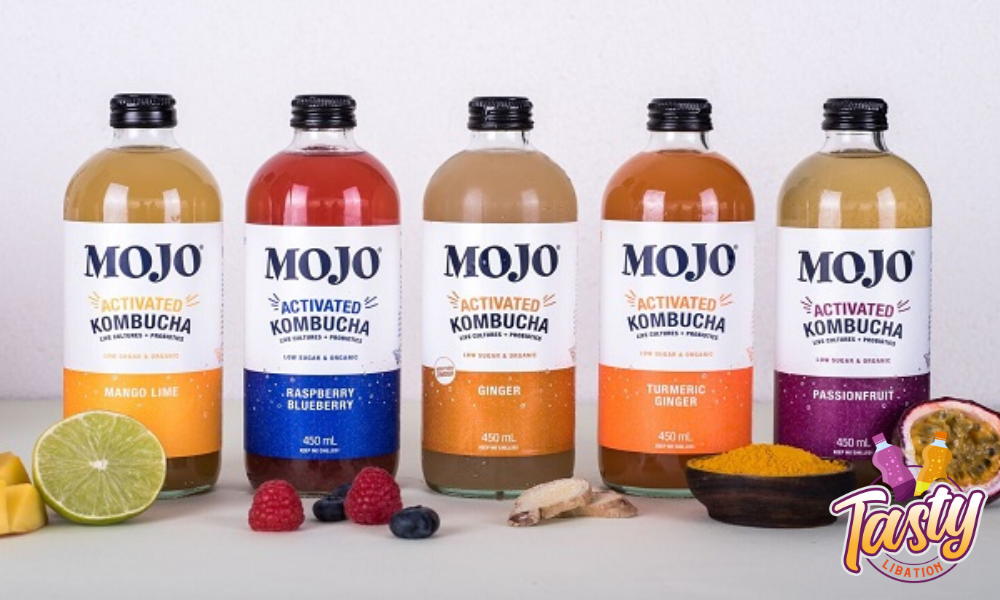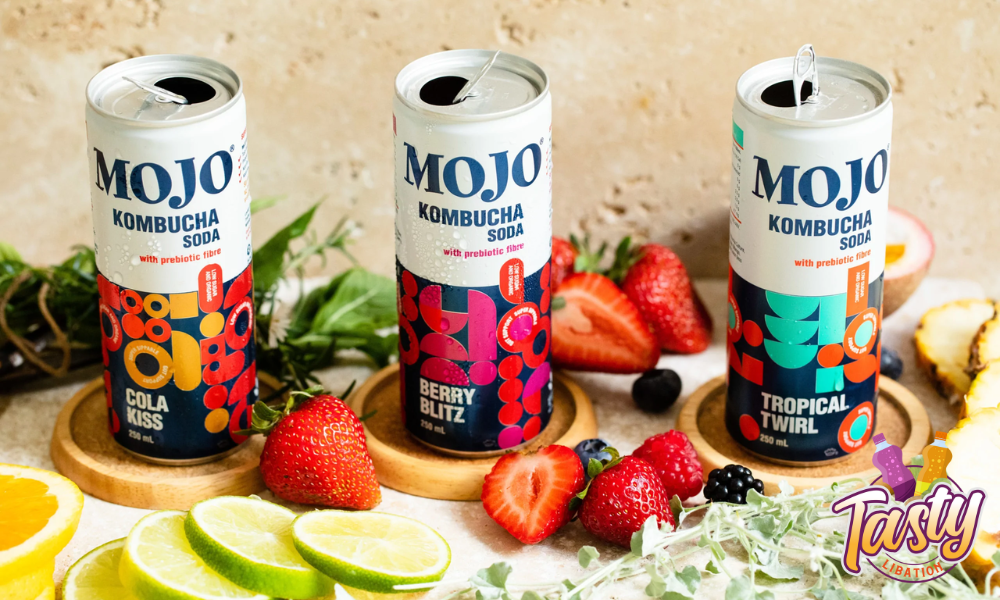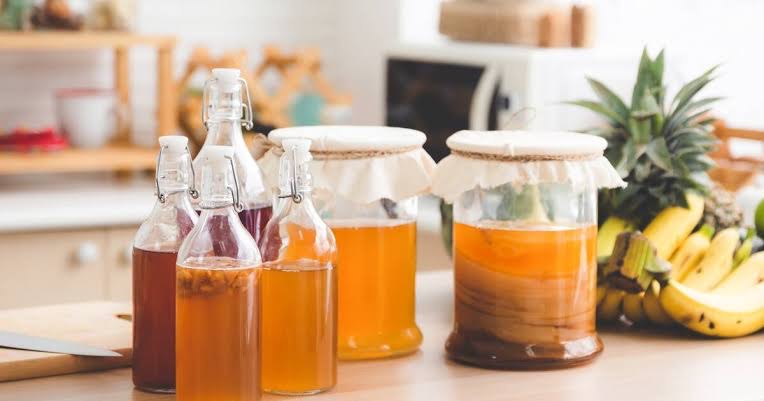Have you ever poured a taste from a bottle of kombucha and wondered if it was still good? Or perhaps a bottle has been sitting in your refrigerator for some time, and you’re not sure if it’s still okay to consume. We’ve all been there, so don’t worry.
In this post, we’ll address your burning questions concerning the kombucha shelf life. We’ll talk about how to recognize when kombucha has gone bad, if kombucha can cause food poisoning, and how long kombucha can be stored after being opened. So grab a bottle of your preferred kombucha (or create some yourself!) and let’s get started.
How Do You Know If Kombucha Is Bad?
Let’s be real – sometimes, kombucha can go bad. It’s a fact of life that we have to accept. But how do you know if your kombucha has gone sour? Here are a few telltale signs:
It smells funky. Kombucha is fermented, so it will have a slightly sour smell. But if your kombucha is starting to smell off – like vinegar or rotten eggs – it’s probably past its prime.
It tastes… weird. Just like with the smell, kombucha should have a slightly sour taste. But if it tastes awful, or if it has an odd, metallic taste, it’s probably not safe to drink.
It looks odd. Kombucha should be a nice, clear color (although some types can be cloudy). If it’s starting to look murky, or if chunks are floating around in it, it’s time to say goodbye to that batch.
It’s been sitting around for way too long. Kombucha has a shelf life, just like any other food or drink. If you’ve had that bottle of kombucha sitting in your fridge for several months (or even years), it’s probably not going to be the freshest. Trust your gut on this one – if it feels like it’s been sitting there for way too long, it probably has.
Can I Get Food Poisoning From Kombucha?

Kombucha has gained much popularity in recent years for its supposed health benefits. But with any fermented food or drink, there’s always the question: can it give you food poisoning?
The short answer is yes; it is possible to get food poisoning from kombucha. But before you swear off the fizzy drink for good, let’s delve deeper into the topic.
First off, it’s essential to understand how kombucha is made. It starts with a base of sweetened tea fermented by a colony of bacteria and yeast, also known as a “SCOBY” (symbiotic culture of bacteria and yeast). The SCOBY feeds on the sugar in the tea and produces some beneficial compounds, including probiotics, which are thought to have numerous health benefits.
During the fermentation process, the SCOBY also produces small amounts of alcohol. Most commercial kombuchas have a very low alcohol content, usually less than 0.5% ABV (alcohol by volume). However, if the kombucha is fermented for an extended period of time or at higher temperatures, the alcohol content can increase.
So how does this relate to food poisoning? Well, it’s all about the quality of the SCOBY and the cleanliness of the brewing process. If the SCOBY is contaminated with harmful bacteria or the brewing equipment is not properly sterilized, the kombucha can become contaminated and cause food poisoning.
But fear not! The chances of this happening are pretty low.
Commercial kombucha manufacturers take great care to ensure the cleanliness of their brewing process and the quality of their SCOBYs. Plus, the acidity of the fermented tea and the presence of beneficial bacteria from the SCOBY help to inhibit the growth of harmful bacteria.
However, there have been a few reported cases of food poisoning linked to kombucha, so it’s still important to be aware of the risks. If you’re brewing your own kombucha at home, it’s important to follow proper hygiene practices and use a clean, high-quality SCOBY.
It’s also worth noting that some people may be more sensitive to the alcohol content in kombucha, especially if they’re not used to consuming alcohol or are recovering alcoholics. In these cases, it’s essential to check the alcohol content of the kombucha and be mindful of how much you’re consuming.
So, while it is possible to get food poisoning from kombucha, it’s relatively rare. As long as you’re careful about the quality of the SCOBY and the cleanliness of the brewing process, there’s no need to worry. So go ahead and enjoy that refreshing, fizzy drink guilt-free!
Does Kombucha Have An Expiration Date?

So, does kombucha expire? Technically speaking, no. The fermentation process preserves the kombucha and makes it shelf-stable for a long time. However, just like any other food or drink, the flavor of kombucha can change over time. It can become less fizzy, less sweet, and more vinegary as it ages.
This is because the SCOBY is constantly eating up the sugars in the kombucha, and as it does so, the pH level of the drink drops. This can lead to changes in the flavor and texture of the kombucha.
Generally, it’s recommended to consume kombucha within a few months of brewing. This will ensure you enjoy the freshest, most flavorful kombucha possible. However, if you do have an older bottle of kombucha hanging out in your fridge, don’t be afraid to give it a taste! It may not be as fresh as a newly brewed batch, but it could still be perfectly safe to drink.
How Long Is Kombucha Good For After Opening?
So, you’ve finally caved and bought yourself a bottle of kombucha. Congratulations! You’re about to experience the tangy, fizzy deliciousness that is kombucha. But, like all good things, it must come to an end. The question is, how long is that end? How long is kombucha good for after opening?
Well, the short answer is that it depends. The shelf life of kombucha after opening can vary depending on a few factors, such as the type of kombucha, how it’s stored, and even your personal taste preferences. Here are a few things to consider when determining the shelf life of your opened kombucha:
If you’ve bought pasteurized kombucha, it will have a longer shelf life after opening than a non-pasteurized kombucha. This is because pasteurization kills any remaining bacteria or yeast that could potentially spoil the kombucha. Pasteurized kombucha can last for up to a month in the fridge after opening.
On the other hand, non-pasteurized kombucha has a shorter shelf life after opening. This is because it still contains live bacteria and yeast that can continue to ferment the kombucha, potentially changing the flavor over time. Non-pasteurized kombucha is best consumed within a week or two of opening.
Proper storage is also key to ensuring that your kombucha stays fresh as long as possible. Keep your kombucha sealed and stored in the fridge to slow down the fermentation process.
Finally, it’s all about personal preference. Some people prefer the taste of freshly opened kombucha, while others like the depth of flavor that comes with a more aged kombucha. Experiment with your kombucha and see what you like best!
Is Kombucha Safe If Not Refrigerated?
Kombucha is a fermented drink, which means that it contains live cultures of bacteria and yeast. These cultures are what give kombucha its signature tangy flavor and health benefits. But, if left at room temperature for too long, the bacteria and yeast in your kombucha can continue to ferment and potentially produce excess alcohol.
We’re not talking about getting tipsy off a bottle of kombucha (although that would be a pretty impressive feat). But, if you’re sensitive to alcohol or want to avoid it altogether, it’s probably best to store your kombucha in the fridge to slow down the fermentation process.
Additionally, leaving kombucha out at room temperature can also lead to spoilage and the growth of unwanted bacteria. While most kombucha brands pasteurize their products to kill off any potentially harmful bacteria, it’s still possible for your kombucha to become contaminated if left out for too long.
So, to sum it up: while it’s okay to leave your kombucha out for a short period of time, it’s generally safer to store it in the fridge to prevent excess fermentation and potential spoilage.
Conclusion
So, does kombucha go bad? The short answer is yes, but it takes a while for it to happen. By paying attention to the signs of spoilage, keeping it refrigerated, and not drinking it past its expiration date, you can enjoy your kombucha without worrying about getting sick.
Just remember to trust your gut (pun intended) and if something doesn’t look or taste right, toss it out.








